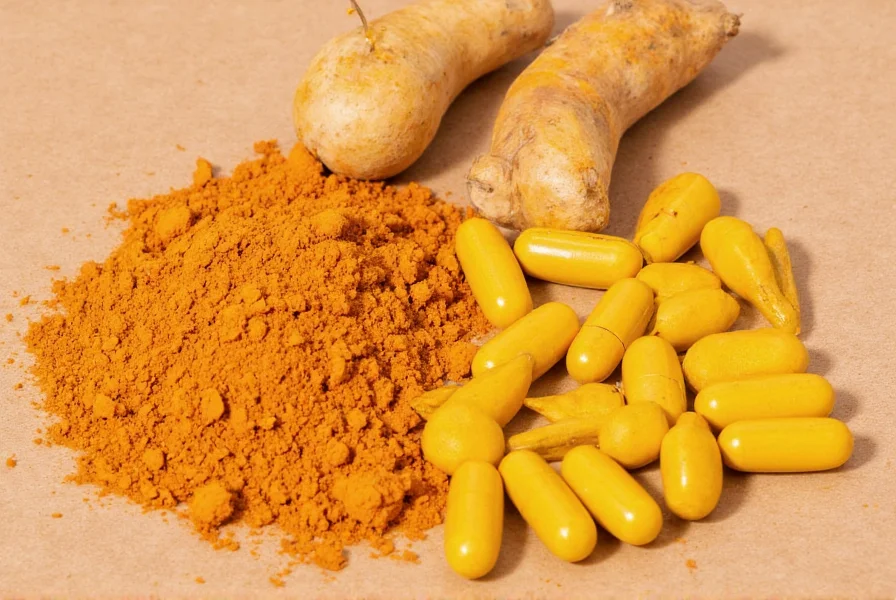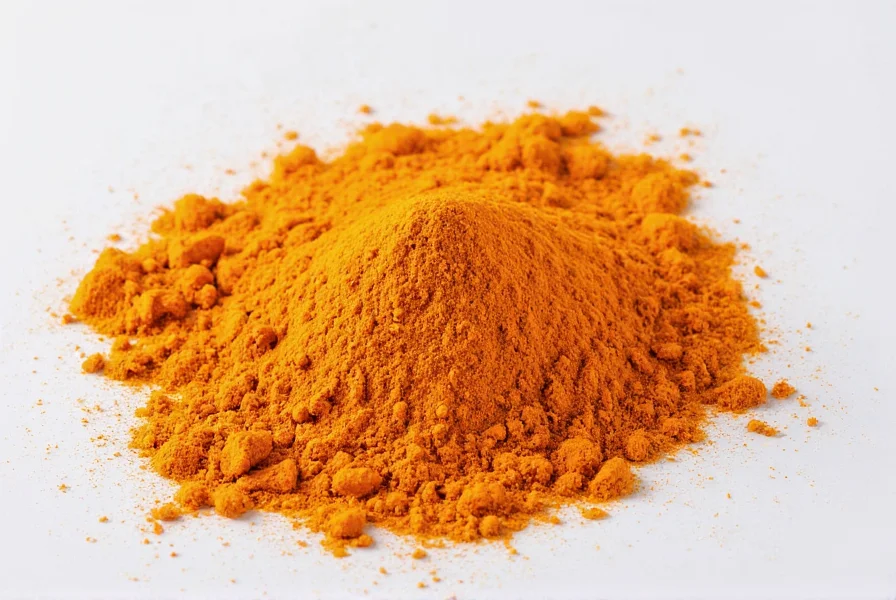
The Science Behind Turmeric Supplements
Turmeric supplements have gained significant attention in evidence-based nutrition for their potential health benefits. The active compound curcumin constitutes approximately 2-8% of raw turmeric but is concentrated in supplements to deliver therapeutic doses. Research published in the Journal of Medicinal Food indicates that standardized curcumin extracts provide significantly higher bioavailability than culinary turmeric alone.
Unlike consuming turmeric in food, supplements deliver consistent curcumin concentrations necessary for measurable physiological effects. The most effective turmeric supplements for inflammation contain 95% curcuminoids with piperine (black pepper extract), which increases curcumin absorption by up to 2,000% according to a Planta Medica study. This formulation addresses the primary limitation of curcumin: its poor bioavailability when consumed alone.
Evidence-Based Health Benefits of Turmeric Supplements
Multiple clinical trials have investigated the effects of standardized turmeric supplements. A comprehensive review in Advances in Experimental Medicine and Biology analyzed over 700 studies, confirming curcumin's potent anti-inflammatory properties. Unlike pharmaceutical anti-inflammatories, turmeric supplements work through multiple pathways without significant side effects when taken at appropriate doses.
| Health Benefit | Research Evidence | Recommended Dosage |
|---|---|---|
| Joint Health | Multiple studies show reduced pain and stiffness in osteoarthritis | 500 mg twice daily of standardized extract |
| Cognitive Function | Improved memory in healthy adults; potential neuroprotective effects | 90 mg twice daily of curcumin-phospholipid complex |
| Cardiovascular Support | Improved endothelial function comparable to exercise | 150-200 mg of highly bioavailable curcumin daily |
Understanding Turmeric Supplement Forms and Quality
Not all turmeric supplements deliver equal benefits. The best turmeric supplement for inflammation contains standardized curcumin extracts rather than whole turmeric powder. Third-party tested products typically specify:
- Curcuminoid concentration (should be 95% or higher)
- Bioavailability enhancement method (piperine, phospholipids, or nanoparticles)
- Third-party verification seals (USP, NSF, ConsumerLab)
When determining how much curcumin per day to take, research suggests 500-1,500 mg of standardized curcumin provides optimal benefits without exceeding safe limits. Higher doses haven't demonstrated additional benefits in clinical studies. The most effective turmeric supplements maintain consistent dosing across batches, which independent testing verifies.
Safety Considerations and Potential Interactions
Turmeric supplement side effects are generally mild when taken within recommended doses. Some users report gastrointestinal discomfort at higher doses. Crucially, does turmeric help with arthritis but may interact with blood-thinning medications due to mild anticoagulant properties.
Individuals with gallbladder issues should consult healthcare providers before using turmeric supplements, as curcumin may stimulate bile production. Pregnant women should avoid high-dose supplements despite culinary turmeric being safe in food amounts. The National Institutes of Health considers turmeric supplements safe up to 8 grams daily, though research benefits appear at much lower doses.
Integrating Turmeric Supplements Into Your Health Routine
For those wondering does turmeric help with arthritis or other inflammatory conditions, consistency matters more than high dosing. Take turmeric supplements with meals containing healthy fats to enhance absorption. Allow 4-8 weeks to assess effects, as benefits accumulate gradually unlike pharmaceutical interventions.
Remember that turmeric supplements work best as part of comprehensive health strategy. Pair supplementation with anti-inflammatory dietary patterns, regular exercise, and stress management for optimal results. The most effective turmeric supplements complement—not replace—healthy lifestyle choices.
Frequently Asked Questions
How long does it take for turmeric supplements to work?
Most research shows measurable effects after 4-8 weeks of consistent daily use. Inflammation markers typically improve within 6 weeks, while joint pain relief may take 8-12 weeks. Individual responses vary based on health status, dosage, and supplement formulation.
Can I take turmeric supplements every day?
Yes, daily use is both safe and necessary for sustained benefits. Research supports daily intake of 500-1,500 mg of standardized curcumin extracts. Long-term studies show good tolerance at these doses, though taking periodic breaks (one week monthly) may prevent potential tolerance buildup.
What's the difference between turmeric and curcumin supplements?
Turmeric contains only 2-8% curcumin by weight. Turmeric supplements typically contain whole turmeric powder, while curcumin supplements provide concentrated extracts (95% curcuminoids). For therapeutic effects, curcumin supplements deliver significantly higher active compound concentrations than turmeric supplements.
Should I take turmeric supplements with food?
Yes, always take turmeric supplements with a meal containing healthy fats. Curcumin is fat-soluble, so consuming it with fats like olive oil, avocado, or nuts significantly enhances absorption. Taking supplements with black pepper (piperine) further increases bioavailability by up to 2,000%.











 浙公网安备
33010002000092号
浙公网安备
33010002000092号 浙B2-20120091-4
浙B2-20120091-4